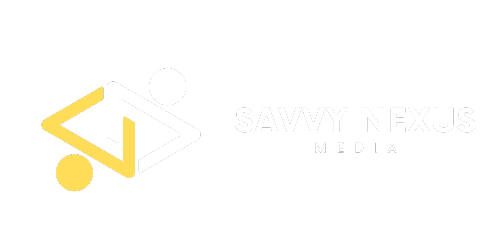The Question
Common FAQ
Donec congue sed leo a posuere. Vestibulum eget tincidunt eros. Sed gravida, ex ac gravida fringilla, erat velit aliquet metus, a vehicula nisi quam gravida diam. Nulla consequat malesuada turpis, fringilla varius ipsum varius vel. Sed tortor arcu, finibus non lacinia et, dignissim nec sapien.
Social media use may increase feelings of anxiety and depression, specifically in teens and young adults.
The addictive nature of social media activates the brain’s reward center by releasing dopamine. This is a “feel-good chemical” linked to pleasurable activities. When we post something, our friends and family can “like” it, giving us a boost of dopamine. However, when we don’t get that boost or approval, it can impact our sense of self and adequacy.
Social media influencers can either prove to be harmful to physical or mental health or they can adversely affect it in a healthy way and promote a positive attitude. Social media has transformed the way we connect with people and promote our brands and services.
Influencers are frequently seen as trendsetters and role models, especially by younger audiences. They are frequently viewed as the epitome of beauty, success, and popularity. As a result, “aspirational” material has become more popular, with influencers showcasing their opulent lifestyles and endorsing things that aim to make their fans more like them.
Duis laoreet, lacus ut blandit porta, ex nibh venenatis dolor, id sollicitudin nulla elit sed quam. Ut ac luctus enim. Integer malesuada, augue nec sagittis semper, elit velit porttitor est, et interdum dolor diam sit amet ligula. Aliquam sed fringilla leo. Sed ante metus, consectetur vitae magna vulputate, dapibus venenatis justo.
Nulla urna nibh, dictum eget libero vitae, pharetra porttitor metus. Nulla cursus condimentum orci, id egestas nisi viverra in. Duis sit amet elit vestibulum, sodales tortor id, pellentesque urna. Duis consequat tempor libero. Mauris vel erat et lacus rhoncus feugiat.
Social media marketing is crucial for businesses as it boosts brand visibility, drives website traffic, and increases customer engagement. With billions of active users, platforms like Instagram, Facebook, and LinkedIn offer cost-effective ways to reach targeted audiences. It allows businesses to connect directly with customers, build loyalty, and gather valuable feedback. Social media also supports sales and conversions through promotions, content sharing, and advertising. Real-time analytics help refine strategies for better results. In a competitive digital landscape, a strong social media presence is essential for staying relevant, growing your audience, and achieving long-term business success.
Businesses use social media for marketing by creating and sharing content that promotes their brand, products, or services. They engage with audiences through posts, comments, stories, and live videos to build relationships and trust. Paid advertising on platforms like Facebook, Instagram, and LinkedIn allows for precise targeting based on demographics, interests, and behavior. Businesses also use influencers to expand their reach and credibility. Social media helps drive traffic to websites, increase sales, and gather customer feedback. Additionally, analytics tools provide insights into audience behavior, helping businesses refine their strategies for better results and long-term growth.
To start social media marketing for a small business, first identify your target audience and choose the right platforms (like Facebook, Instagram, or LinkedIn). Set clear goals—such as increasing brand awareness or driving sales. Create a content plan with a mix of promotional, educational, and engaging posts. Use high-quality images, videos, and captions that reflect your brand’s voice. Post consistently and engage with followers through comments and messages. Start small with paid ads to reach a wider audience. Use analytics to track performance and adjust your strategy over time. Stay authentic, and focus on building strong customer relationships.
Influencer marketing helps brands by leveraging the trust and reach of popular social media personalities. Influencers have loyal followers who value their opinions, making their recommendations more authentic and persuasive than traditional ads. By partnering with influencers, brands can increase visibility, build credibility, and reach targeted audiences more effectively. Influencers create relatable content that showcases products in real-life scenarios, boosting engagement and driving sales. This strategy is especially useful for launching new products, entering new markets, or improving brand image. With the right influencer, brands can gain exposure, grow their audience, and achieve measurable marketing goals quickly and efficiently.
Influencer marketing is important because it allows brands to connect with their target audience in a more authentic and relatable way. Consumers often trust recommendations from influencers more than traditional advertisements. Influencers build strong relationships with their followers, so their endorsements feel genuine and personal. This trust can lead to higher engagement, increased brand awareness, and improved sales. Influencer marketing also helps brands reach specific demographics, especially younger audiences active on social media. It’s cost-effective, highly targeted, and measurable, making it a powerful tool in modern digital marketing strategies. In today’s crowded market, influencer marketing offers a competitive edge.
Yes, social media marketing greatly helps with brand building. It allows businesses to showcase their identity, values, and personality consistently across platforms. Through regular posts, engaging content, and direct interaction with followers, brands can create a strong, recognizable presence. Social media also helps build trust and loyalty by allowing real-time communication and customer support. User-generated content, reviews, and influencer partnerships further enhance credibility. Over time, this consistent and authentic engagement helps shape how people perceive a brand, making it more memorable and trustworthy. In today’s digital age, social media is a powerful tool for building and strengthening a brand.
